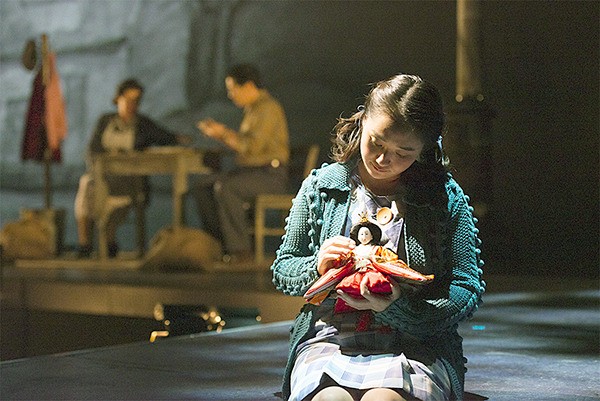Native islander, author and speaker Mary Matsuda Gruenewald chronicled her childhood memories of life in a Japanese-American internment camp during World War II in her book, “Looking Like the Enemy.” Now, Gruenewald’s story and that of Marianne Weltmann, a German-Jewish opera singer who escaped Nazi Germany, are the subject of Seattle Opera’s “An American Dream.”
Fiction writer, journalist and librettist for the opera, Jessica Murhpy Moo, will discuss the process of creating a community opera at a free event sponsored by Friends of Mukai at 3 p.m. Sunday at the Land Trust.
The project began when Seattle Opera set up a video booth at McCaw Hall in 2011, inviting community members to answer the question, “If you had to leave your home today and couldn’t return, what would you take with you? Why is that object, that memory or that connection to your past so important?”
Seattle Opera then commissioned Moo and San Francisco composer Jack Perla to create an opera based on the responses. Of the dozens of stories, two stood out — Gruenewald’s and Weltmann’s — for their strong emotional content.
Gruenewald spoke of collecting hundreds of thousands of tiny shells, which she later made into necklaces for her friends back on Vashon, from Tule Lake, California, where her family was incarcerated.
Weltmann’s tale described her small hometown in Bavaria from which she and her family escaped, while her father’s siblings, who remained in Germany, perished in the Holocaust.
On Sunday, Moo will talk about the significance of local stories and the process of adapting them for the stage and for singers.



